Join top candidates from across the continent and master your research skills.

Doctor of Philosophy
- Executive Education
- Leadership & Management Development
- Management Skills
- Sustainability
- Industry Specific
- Academic Programmes
- MBA Full Time
- MBA Modular
- Executive MBA
- PhD in Business Administration
- PGDIP in Management Practice
- CEMS Master of International Management
- MPhil in Inclusive Innovation
- MCom in Development Finance
- PGDip in Development Finance
- Scholarships
- Assessments
- Customised Programmes
- Customisation Design Process
- Customised Programmes Solutions
- Our Corporate Clients
- Customised Study Tours
- Full-time Faculty
- Emeritus Faculty
- Adjunct Faculty
- Research Themes
- Research Ethics
- Publications
- Specialised Centres
- Allan Gray Centre for Values-Based Leadership
- Bertha Centre for Innovation & Entrepreneurship
- Development Finance Centre
- Solution Space
- GSB Library
- GSB Initiatives
- Case Writing Centre
- Power Futures Lab
- Affiliations & Projects
- Centre for Coaching
- Lean Institute Africa
- About the GSB
- Our History
- Our Credentials
- Campus and Locations
- Work for us
- School Leadership
- Management Committee
- Heads of Departments
- The Student Experience
- Career Leadership Centre
- Student Societies
- The Alumni Experience
- Alumni Events
- Alumni Reunion Weekend
- Alumni News
- International Relations
- Student Exchange
- GSB Partner Schools
Ideas Exchange
- Emerging Market Business
- Entrepreneurship & Innovation
- Leadership & Ethics
- Learning & Development
- Management Fundamentals
- Year in Review Publication
- Newsletter Subscription
DOCTOR OF PHILOSOPHY SPECIALISING IN BUSINESS ADMINISTRATION
Make an original contribution to research, join a vital research community.
PhD students at the UCT GSB are a vital part of our research community and research strategy.
The University of Cape Town is Africa’s leading research institution and the PhD programme at the GSB is an essential component of this.
PhD candidates are expected to:
- Develop a formal research proposal within the first six months of registration
- Set commitments and a timeline outlined in a Memorandum of Understanding (MOU) with their supervisor which needs to be signed every year
- Take a proactive approach to identifying learning needs and implementing suitable responses
- Actively participate in the GSB Research Calendar
- As appropriate, actively participate in the academic life of the GSB through lecturing, research seminars and / or co-supervision of MBA research reports
* Application & Course fees are provisional for 2025, and are subject to annual UCT council approval
uct gsb PHD overview
Learn more about the annual term dates for the UCT GSB PhD.
Learn more about which attributes and qualifications are required for the UCT GSB PhD.
A step-by-step guide on how to apply for the UCT GSB PhD
The UCT GSB is committed to broadening access to postgraduate education through funding and scholarship opportunities. Explore funding options available to PhD candidates.
ORIGINATE NEW IDEAS
Join our research community to originate new ideas and develop innovative solutions to today’s pressing challenges
In line with the GSB’s research mission of "engaged inquiry in a complex world," PhD students are expected to make an original contribution to research.
Research at the UCT GSB is focused around three major themes: emerging markets finance, investment and trade; social innovation and sustainability; and values-based leadership.
FREQUENTLY ASKED QUESTIONS
How long does a phd take.
The typical duration of a PhD project is between three and four years, if the student is dedicating the bulk of her or his time to the project.
A candidate must be registered for at least two consecutive years, although registration for a year at another university may be accepted as part of that period.
Although no maximum period of time is prescribed for completing a thesis, the university stipulates a "reasonable time", which is generally taken to be five years. If a candidate is not making satisfactory progress, the Commerce Faculty's Higher Degrees Committee may issue a warning, and, if necessary, may refuse re-registration.
How many hours per week are required?
Though we do allow part-time PhD students into the programme we recommend that students are able to dedicate at least 20 hours a week to the project. Experience shows that it is otherwise difficult to create and maintain the necessary momentum. Supervisors can at their discretion require students to adhere to certain time commitments.
How do I find a supervisor?
Your nominated PhD supervisor must be a full-time academic at the GSB and must be actively publishing in scholarly literature in the field in question. GSB faculty can discuss applicants' research ideas and preliminary proposal at their discretion, but we advise applicants not to contact potential supervisors without some preliminary research ideas.
Please note, it is not always possible to find a supervisor who is both suitable and available, and an applicant cannot be registered if there is no available supervisor for the proposed research at the GSB.
For a full list of GSB faculty and their research interests, check the GSB website.
Read the guidelines for PhD candidates and supervisors here .
How do I present my research proposal?
Once registered in the PhD programme, you will have approximately six months to develop a full research proposal. This proposal will need to be presented formally to a committee consisting of at least three faculty members, including the supervisor. The key purpose of this presentation will be to a) assess that the student has been making adequate progress and b) provide some helpful feedback so that the student can improve her/his proposal prior to entering the field.
This process consists of the following:
- Each PhD student commits to a particular slot in the dedicated student presentation PRC sessions in the GSB Research Calendar. If possible, each two-hour slot will include proposal presentations that are broadly in a related theme. There will be three presentations in each slot. This commitment to a particular slot ought to happen as soon as possible.
- Each proposal is assigned to an appraisal committee including at least three faculty members: the supervisor, the GSB Research Director (or her/his nominee), plus at least one additional faculty member with a pertinent background. The committee will be agreed upon by the GSB Research Director and the supervisor.
- Each student submits to the appraisal committee (via the Research Director) a digital copy of the proposal at least one week prior to the presentation.
- Each student has 20 minutes to present her or his proposal, followed by 20 minutes discussion.
The appraisal committee will provide formal feedback to the student in writing. The final appraisal could be summarised in one of the three categories, akin to those provided for in PhD final assessments, i.e. a) good as is; b) requires some changes; c) wholly unsatisfactory. If the verdict is "a" the proposal and the committee's recommendation are sent directly to the Higher Degrees Committee in the Commerce Faculty. If the result is "b" the student will need to make specific revisions to the satisfaction of the supervisor, after which it will be sent to the Higher Degrees Committee. Inadequate proposals that receive a "c" verdict will be considered on a case-by-case basis, but the likely outcome is that the student will not be allowed to re-register in the next year for a PhD.
Click here for more information.
Will the PhD help me expand my network?
The GSB has an extensive network both locally and globally, and we frequently facilitate introductions for our students.
During your research, you will have access to industry experts and key local and global specialists - from deep-content experts to market professionals working in the community. Their insight and feedback will help you to improve your solutions.
You will also have the opportunity to connect with like-minded professionals across different industries and build your network.
Once you graduate from the UCT GSB you will join our alumni network which is a dynamic forum that comprises more than 23 000 past GSB students in 68 countries worldwide. Many of the GSB’s alumni hold key positions in top companies or have started their own successful businesses. Alumni play a vital role in supporting and encouraging more recent graduates to follow in their footsteps and GSB students who find employment after graduation - particularly internationally - frequently do so through alumni contacts.
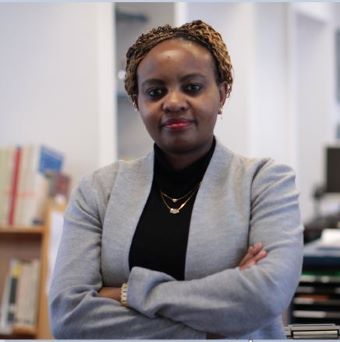
MEET THE GSB PHD PROGRAMME DIRECTOR
JOSEPHINE MUSANGO
Josephine K Musango is a skilled resource economics and system dynamics professional and a transdisciplinary researcher. Josephine’s research interest entails using a systems approach in managing change and policy-related challenges in the energy transition, the green economy and urban African energy issues. She has worked with professionals in other academic disciplines, governments at multiple levels, industry and the community. She also teaches system dynamics and sustainable development.
UPCOMING EVENTS
Stay up-to-date with the latest events from Africa’s top business school.
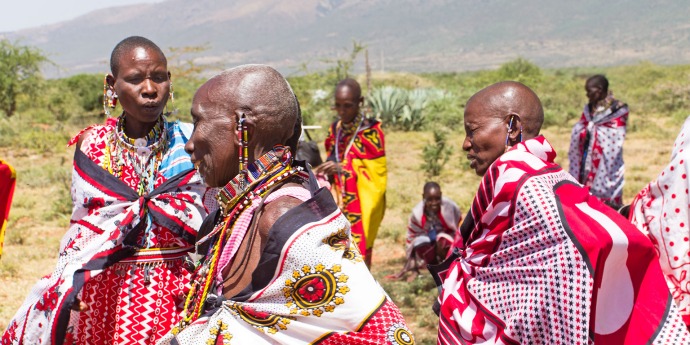
Becoming a businessperson is not a straightforward journey for all
Building business skills to improve livelihoods is increasingly being recognised as a mechanism to lift communities out of extreme poverty. But in many survivalist communities, the principles of business can clash with the existing values of the community.
Start your application journey here
We’d like to know more about you. Please fill out the form below, to enquire about doing the PhD or to begin the pre-application process.
- People/Staff
PhD Programme
The School of Human and Community Development currently offers:
- The general PhD (by thesis OR including publication)
- The PhD including publication in the area of Psychoanalytic Psychotherapy and Practice
The application procedure detailed below pertains to both types of PhD
Disciplines covered in this School: Psychology, Social Work, Speech Pathology, Audiology – for PhDs in other disciplines please contact the relevant Department/School
Application process
Please note that application into PhD studies in our School is contingent upon the following criteria:
a) A minimum aggregate mark of 70% in the Master's degree (NQF level 9).
b) A mark of 70% for the Masters research component is required in order to be considered for admission into the PhD program. Applicants with a mark between 65 - 69% for the Master’s research component will need to provide a motivation and evidence of additional scholarly outputs, for example, peer-reviewed journal articles or equivalent, along with the concept paper in order to be considered. References may also be requested from the Master’s supervisor and/or a motivation from a potential PhD supervisor.
c) Submission of a concept paper that outlines the proposed PhD project, and which is found to meet the requirements for PhD level study by the School's PhD committee (See information below on how to write a concept paper).
d) The availability of a supervisor for the proposed project. For information on staff research interests, please Click Here to download the document highlighting the staff research interests
The application process begins with a formal submission to the Student Enrolment Centre (SEnC).
The School is represented at SEnC by a postgraduate team who will facilitate the submission. The School requires that the following documents be included in the submission:
- The online application form.
- A full academic transcript of all previous university courses taken, including percentage scores where possible. Students who completed degrees at Wits do not need to submit transcripts for these.
- A SAQA equivalence certificate if the Master’s degree was not completed at a South African University. Please note that this can take some time to obtain, and an application for this should be made to http://www.saqa.org.za/ well in advance of the application to Wits.
- A copy of the Master’s research report or dissertation, as well as any publications.
- A recent curriculum vitae, including the details of two referees.
- A concept paper outlining the proposed PhD project. Information on what is expected in the concept paper is available Click Here
- Further documentation will be required for applicants who do not meet the 70% minimum academic requirement as explained under point b) above.
- All queries related to the actual submission should be directed to SEnC postgraduate team via their call centre on 011 717 1888 or via e-mail on [email protected] once complete, the application is forwarded on to the Faculty and then the School for screening.
Upon receipt of the application, the documents are sent for independent review by two members of staff in the School. The reviews should be complete within 3 weeks of receipt.
The reviews are then scrutinised by the School’s PhD Committee and a potential supervisor, identified by the PhD committee. The application is then accepted or rejected. A telephonic or Skype interview with the candidate may be requested, and the applicant may be offered an opportunity to revise the concept paper if the concept has potential but does not fully meet the criteria for a PhD project. The outcome will then be communicated to the Faculty. The Faculty officer will then inform the student of the outcome. Candidates are expected to commit to a number of face-to-face meetings per annum with their supervisor – this includes candidates who do not reside near to the university, and this factor needs to be budgeted and planned for when considering a PhD.
In the case of acceptance for candidature, the applicant will be invited to register with the Faculty of Humanities. The candidate will also be informed when s/he is expected to present a proposal of acceptable quality to the School Committee within 6 months (if registered Full-time) and one year (if registered Part-time) of registration, and before the proposal is send to Faculty for review. During this point, the candidate’s registration is provisional, and final acceptance into the PhD is contingent upon the proposal being acceptable and meeting the criteria for a PhD project. The Committee reserves the right to terminate a student’s candidature at any point during this proposal registration period at its discretion.
The Committee makes one of the following decisions at the School proposal presentation:
- Accept the proposal for submission to the Faculty.
- Accept the proposal for submission to the Faculty subject to revisions undertaken to the satisfaction of the supervisor.
- Call for re-presentation.
- Reject the proposal and terminate the candidature.
Should the Committee take decision 3, the candidate will be expected to re-present the proposal within one month, at which time the Committee will make one of the following decisions:
- Accept the proposal for submission to Faculty
- Accept the proposal for the submission to Faculty subject to revisions undertaken to the satisfaction of the supervisor
- Reject the proposal and terminate his/her candidature
Following approval by the SHCD the candidate’s PhD process will be governed by the generic Faculty structures outlined Click Here to download the document
The document includes information on the graduate infrastructure and support offered by the University and importantly provides guidelines for preparing the final proposal for submission to the School and Faculty after the six month/ one year formal preparation period.
Fees and funding
Please go to https://www.wits.ac.za/study-at-wits/fees-and-funding/ for information on Fees and funding/scholarships/bursaries.
Many students will find it difficult to self-fund their PhD studies. This means that a large proportion of our students do their PhD part-time. Unfortunately, this limits eligibility for many of the funding opportunities. Visit http://www.wits.ac.za/study-at-wits/fees-and-funding/ for information on University opportunities for funding. In addition, some research projects may come with funding linked to the supervisor. It is recommended that you speak to potential supervisors about this possibility (please note that this funding is usually attached to specific research projects).
The Faculty and School hold various workshops and writing retreats for PhD students during the course of the year (see https://www.wits.ac.za/humanities/faculty-services/humanities-graduate-centre/ )
Should you have any queries regarding the PhD process, please contact the Chair of the School’s PhD Committee, Professor Thobeka Nkomo, [email protected]
Please note that this pertains to PhDs in Psychology, Speech Pathology, Audiology and Social work only. For PhDs in other disciplines, please contact the relevant Department/School.
We look forward to receiving your application.
- Department of Psychology
- Hall of Fame
- Research Focus
- Recent Research
- Past Honours Research Projects
- Studying Psychology at UCT
- Applying for Undergraduate Studies in Psychology
- Bachelor of Social Science (Honours) specialising in Psychology
- How to apply for Honours in Psychology
- MA in Clinical Psychology
- MA in Psychological Research
- MA in Neuropsychology
- MSocSci in Psychology
PhD in Psychology
- What can I do with my Psychology degree?
- Ethical Approval
- Library Guide
- Plagiarism Policy
- News archive
- Contact details for the Child Guidance Clinic
This is a research doctoral degree, by dissertation only. Students develop their own research topic in conjunction with a supervisor, conduct the research and then write a dissertation of no more than 80 000 words.
This degree does not lead to registration as a Psychologist with the Professional Board for Psychology.
Admission requirements
Faculty Rules FDA1-FDA6, as listed in the Faculty of Humanities Postgraduate Handbook , apply.
Applicants must have completed a master’s degree in the Social Sciences, Humanities or cognate discipline. The degree must have been completed with an overall average result of no less than 70%.
Preference will be given to students who plan to conduct research in areas currently undertaken by academic staff in the department.
Applicants must have the required background and submit an acceptable research proposal for which supervision is available.
Research degrees are encouraged where the field of research is clearly defined, the student wishes to concentrate on a specific research topic and has demonstrated the ability to do so.
The availability and willingness of a supervisor will be a key factor in admitting a student for PhD study. Please look carefully at the list of staff in our department, and their research interests.
Application procedure
The first step in the process is to find a supervisor, and to obtain agreement from the supervisor regarding supervision of the research for the degree. When attempting to find a supervisor in the department, applicants are advised to submit a short (5 – 8 page) research proposal to staff members.
The next step, after securing a supervisor is to write to the PhD Convenor, Professor Floretta Boonzaier with proof of agreement from a supervisor, the brief research proposal, Full Trancript, MA Degree certificate, letter of motivation, CV and two references letters. This application will be considered by a Departmental Committee.
Applicants must, at the same time also apply to the university for the degree.
Please apply through the Admissions office via this link:
https://applyonline.uct.ac.za/psc/onapplic/EMPLOYEE/HRMS/c/UCT_PUBLIC_MENU.UCT_SS_APPL.GBL?FolderPath=PORTAL_ROOT_OBJECT.UCT_SS_APPL_GBL&IsFolder=false&IgnoreParamTempl=FolderPath%2cIsFolder&
Note that there is no closing date for PhD applications, although you must indicate the year in which you wish to commence your studies.
For any additional queries please contact Mia Karriem. Her contact details are [email protected] / 021 650 3438.
- Apply for admission 2024
Master's & doctoral degrees
- Qualifications
- All qualifications
- College of Accounting Sciences
- College of Agriculture and Environmental Sciences
- College of Economic and Management Sciences
- College of Education
- College of Human Sciences
- College of Law
- College of Science, Engineering and Technology
- Graduate School of Business Leadership
Doctor of Philosophy in Public Health
Closing date for applications for admission to master's and doctoral qualifications for 2024 academic year (some exceptions apply) extended to 31 january 2024., admission requirements, student fees and funding your studies.
- Application for admission
Registration
A master's degree in Public Health with an average of 60%. In addition to the above requirements, applicants must submit a transcript or an academic record, as well as a document describing their intended research. All students with foreign qualifications, including those with qualifications from African countries, must have their qualifications evaluated at SAQA. (www.saqa.org.za) Students will be accepted on the following criteria: Suitability and viability of the intended research; adequate supervisory capacity and research expertise in the discipline or department. There is an approved selection procedure which is in line with Unisa's policies on equality and diversity in the discipline or department.
Time limits for this degree
All master's and doctoral qualifications are structured over a defined period. Refer to sections 4.12 and 4.13 in the Procedures for master’s and doctoral degrees .
A student registered for a research doctoral programme must complete the study programme within six years. A student may make application to the Registrar for one additional year of study who will only consider the application if it is recommended by the Executive Dean of the College in which the student is registered.
Doctoral degree
A doctoral degree will require you to undertake research at the most advanced academic levels culminating in the submission, assessment and acceptance of a thesis. Coursework may be required as preparation or value addition to the research, but does not contribute to the credit value of the qualification. The defining characteristic of this qualification is that you will be required to demonstrate high-level research capability and make a significant and original academic contribution at the frontiers of the discipline or field. This work must be of a quality to satisfy peer review and merit publication.
Research focus areas
Click here to view a list of departments and research focus areas for the College of Human Sciences.
Research outline
Unisa’s admission policy has changed and you are now required to submit a detailed research outline for the qualification for which you apply. No application submitted without a detailed research outline will be considered. Although this research outline may differ for each qualification or academic department, the basic information required is as follows:
- Summary of topic
- Short literature review
- Expected contribution of the study
- Methodology to be followed
- Availability of the data
- List of references
- Reasons why you are interested in the topic
Click here for the guidelines on how to prepare a research outline.
Plagiarism of any form is unacceptable. Please take note of Unisa's Policy for Copyright Infringement and Plagiarism .
Application fee
Pay the online application fee of R135,00 once you have received your Unisa student number.
Please note:
- The application fee is non-refundable even if you decide not to study through Unisa or do not qualify for admission to Unisa.
- Use the student number you receive from Unisa AND the application fee reference number (eg STUDENTNUMBER 5370810030).
- Send your proof of payment to [email protected]
- Visit www.unisa.ac.za/paymentinfo for Unisa's payment methods and banking details.
An application for a student number does not constitute an application for admission. After you receive your student number, you must still complete the online application for admission process and upload the compulsory supporting documents.
Student fees
Click here for the 2023 student fee information. The fee information for the 2024 academic year will be available at the time of registration.
Students registering for qualifications through the Graduate School of Business Leadership (SBL) should visit the SBL website for fee information, as the SBL uses a different fee structure.
Click here for student funding/bursary opportunities.
Apply for a student number and apply for admission
Applications for admission to master's and doctoral qualifications for the 2024 academic year will be open from 11 September to 14 November 2023 ( some exceptions apply ).
Click here to apply for a student number and apply for admission.
Please ensure that you apply for a Unisa student number (if applicable), apply for admission and upload all the supporting documents during the application period.
You have 10 working days to upload all the supporting documents during the application period. If you do not comply with this requirement, your application will be declined and you will have to re-apply for admission during the next application period.
Only students whose application for admission was approved and re-registering students (who made sufficient progress during the current academic year) will be allowed to register online within the approved registration period for the 2023 academic year. Students with outstanding fees or a Library block on their accounts, will not be able to register online until these issues have been resolved. No printed registration forms will be accepted.
Click here for registration information.
PhD-Funding

- Committee for Postgraduate Research
- Research Masters Examination
- Pre-Doctoral Short Course
- PhD Registration
PhD Support
- FAQ Contacts
- Meet the Team
- Courses and workshops
- Research Steps Infographic
- Roadmap to Research
- Find a Research Project
- Past Student Research
- Student Publications
- Videos: Students' Experiences
- Student Annual Academic Day
- Undergraduate Research Committee
- Q Tygerberg Undergraduate Research Society
- Frequently Asked Questions RC
- Undergraduate Research Project Fund
- Undergraduate Conference Presentation Fund
- Undergraduate Publication Incentive Fund
- Undergraduate Open Access Fund
- Undergraduate Research Ethics Committee (UREC)
- Quick Guide to Applying for Ethics Approval
- Ethics Application Package
- Forms & Instructions
- UREC Submission Dates
- UREC Members
- Frequently Asked Questions
- Health Research Ethics Office
- CPD ethics videos
- Useful Links
- HREC Review Process
- HREC Committee Members
- HREC Forms & Instructions
- HREC Meetings / Submission Dates
- HREC SOPs & Guidelines
- SU Research Ethics Policies
- Undergraduate Research Ethics Committee
- COVID-19 updates
- Information Sessions
- Funding Support
- Regulations & Procedures
- Tygerberg International
- Back to FMHS
- Contact RIDS
- Research Capacity Development & Funding
- FMHS Doctoral Office
- Registrar Research
- Undergraduate Research
- Health Research Ethics
- Research Grants Management
- Student Societies
- Colour navigation blocks
- Faculty of Military Science
- Department Images
- Programme - Annual Academic Day
- Committee Members - Annual Academic Day
- Sponsors - 65th Annual Academic Day
- Contact us - Annual Academic Day
- Guest Speakers - Annual Academic Day
- Abstracts - Annual Academic Day
- Registration - Annual Academic Day
- Vision & Mission
- Core activities
- Organizational Overview
- Governing Board
- Management Committee
- International Collaborators
- Scientific Forum
- The African Microbiome Institute (AMI)
- The African Microbiome Institute (AMI)
- The African Microbiome Institute (AMI)
- Anaesthesiology and Critical Care
- Academic programmes
- Anaesthesiology and Critical Care - Contact us
- Anaesthesiology and Critical Care
- Critical Care Sub-speciality Training
- Elective training
- Supernumerary Registrar positions
- ARESA Seminar
- Module 1 Gallery 2012
- Module 1 Gallery 2013
- Module 1 Gallery 2014
- Module 2 Gallery 2012
- Module 2 Gallery 2013
- Module 3 Gallery 2012
- Module 3 Gallery 2013
- Seminar Gallery 2012
- Seminar Gallery 2013
- Seminar Gallery 2014
- Seminar Gallery 2015
- SAREC Newsletters
- Newsletters all
- Publications
- Seminar Gallery 2016
- Seminar Gallery 2017
- Seminar Gallery 2018
- FMHS Research
- Construction of the BMRI
- Video and image library
- World-class research
- Research Impact
- Media Resources
- Department of Biomedical Sciences
- Sample Processing and Preparation for Storage
- Service fees
- General Financial Management
- Grants Management Office
- Legal and OHS compliance Office
- Human Resources support
- Digitisation Office
- Facilities Management Support
- Information and Communication Technology Support
- Cardiothoracic Surgery
- Collaboration
- Teaching & Training
- Past events
- Centre for Disability & Rehabilitation Studies
- Division of Disability & Rehabilitation Studies
- Division of Disability & Rehabilitation Studies - Contact us
- Centre for Student Administration
- Policy documents
- Almanac & Schedules
- Pledge Ceremonies - 13 December 2021
- FMHS Student Bursaries
- Deputy Registrar (Tygerberg Campus)
- Chemical Pathology
- Clickers / Audio Response Systems
- Faculty development
- MPhil and PhD in HPE
- Short courses workshops
- Introduction to Teaching
- Interprofessional education and practice
- Simulation and Clinical Skills Unit
- Graduate attributes
- Support for undergraduate programmes
- Student support and development
- Student support
- Research and related activities
- HPE research
- Learning Technologies
- Division of Clinical Anatomy
- Division of Clinical Anatomy
- Division of Clinical Anatomy
- Division Anatomy and Histology
- Division Clinical Anatomy
- Division of Anatomy and Histology
- Poison information charts
- Tygerberg Poison Information Centre
- Division of Clinical Pharmacology
- Division of Clinical Pharmacology
- SI Strategic Framework
- SI Research and Innovation
- SI Teaching and Learning
- Professional Practice
- SI Structured Volunteerism
- Funding opportunities 2024
- Call for nominations: Stellenbosch University Social Impact Awards
- INFORM-Africa
- African Consortium of Bioethicists (ACB)
- Conceptual-Team
- Stakeholder-Engagement-Team
- Data-Science-Team
- Crowdsourcing
- Evaluating the impact of an educational video on the knowledge of South African patients undergoing renal dialysis regarding the use of their health data.
- WHO_Collaborating_Centre
- Ethics_hotmail
- Tygerberg_Clinical_Ethics_Committee
- Presentations
- HIV Cure Research
- HIV Cure Video
- Undergraduate teaching
- The Jehovah’s Witness & Blood Transfusions
- Human Reproduction - Termination of Pregnancy
- Paediatrics & Ethics
- Resource Allocation
- Health and Human Rights
RIDS | Tygerberg Doctoral Office
Phd fees and funding.
A doctoral degree is a shared investment - by the state, the university, the individual, and funders - in the future prospects of an individual, community and society. Click on the links to jump to the following sections below:
- Bursaries and research funding
Student loans
- Financial support
Food security support
- Student fees are set for one academic year, and fee structures are subject to change without notice.
- Additional fee implicants apply when a student exceeds the maximum duration of a programme.
Doctoral students in the FMHS may request the outstanding balance on their student account, or other account information, from Ms Lesanne Matthee ( [email protected]c.za ). Specific errors on a PHD student's account may be logged with Ms Anri Engelbrecht ( [email protected] ). Please CC these emails to [email protected] .
International students may request a statement for the purpose of lifting the international block from Tygerberg International ( [email protected] ). Payment must be made well in time to allow sufficient opportunity for registration before the final cut-off date of 27 January for each consecutive academic year; and 27 March when registering for the first time.
All SU staff are welcome to apply for a staff rebate via FMHS Business Management. Email Ms Lezel Fisher ( [email protected] ).
Bursaries and Research Funding
Various bursaries are available to PhD candidates - all on a competitive basis. South-African PhD candidates can apply for all available bursaries. International PhD candidates can apply for the SU SU Postgraduate Scholarship Programme , an NRF bursary, or a Harry Crossley bursary . A selection of private bursaries are also available. Research degree f unding is also available from several funding bodies, including the National Research Foundation (NRF), South African Medical Research Council (SAMRC) and private foundations.
These opportunities usually have application closing dates during the course of the second semester with a view to first registration in January.
- SU Bursaries and Loans for the current academic year are covered in Part 2 of the SU Calendar .
- Numerous calls for funding applications are published at this link throughout the year, but concentrated in July to October with a view to support in the following academic year. Also consider making use of the opportunities for funding support .
- Visit the official page on available bursaries .
- The link from where students may apply for funding/bursaries is here .
Each of these bursaries on the website have specific conditions which may change from year to year. Should you want to pursue a specific opportunity, please enquire directly to [email protected] .
Alongside the scholarships that privilege medicine and health sciences studies, certain funding opportunities have been under-utilised in the faculty. Candidates have disqualified themselves by failing to apply. PhD students with research topics that are inter- or multidisciplinary and include elements of social sciences are encouraged to consider and apply for those funding opportunities that are not restricted to health sciences.
For instance, The National Institute for Humanities and Social Sciences and HB & MJ Thom Scholarship programme are often overlooked funding opportunities, that are open to South African citizens.
The Next Generation Social Sciences in Africa call is open to citizens of any sub-Saharan African country doing PhD at an accredited university in South Africa, Tanzania, Ghana, Kenya, and Uganda. These scholarships support studies focused on three thematic areas: Peace, Security, and Development. Health sciences project can be linked to these themes with adequate motivation of the project’s relevance and in particular to development in Africa.
To qualify for calls such as these, pay attention to the call and identify ways to demonstrate the potential social impact of a doctoral study. Social issues are diverse with health components included, it takes a holistic approach when applying or answering calls under social sciences.
It is always important to prepare adequately for the application process and attend to the specific requirements of each particular funding opportunity.
Should you not be awarded a bursary or scholarship, you may want to consider the common practice among students in professional degrees of taking out a private student loan which is usually repayable upon graduation, when you have started your career. It is not advisable to make use of micro-lenders or informal institutions for this purpose. Financial legislation will protect you and interest rates will be significantly more favourable if you take out a loan from a well established bank licensed in your country of ordinary residence and citizenship.
For more information on possible student loans to South African citizens:
- Please visit this link about independent applications; - Please visit this link about the option to apply for a loan as per the SU FMHS agreement with the relevant bank; - You are also welcome to enquire about student loan options at your usual, SA Reserve Bank registered bank .
Financial Support
South African students from specific household income categories may qualify for f unding from the National Student Financial Aid Scheme (NSFAS) .
The SU Work-Study Programme allows students to gain work experience while studying. These students earn a minimal income per month to assist with their financial need. To find out more about the Work-Study Programme, contact Ms Lizzie Witbooi at [email protected] .
With regard to Intellimali disbursements, please see http://www.intellimali.co.za/ . Students may track their stipends for living/food and accommodation via the Intellimali portal. Log in with username [your student number] and password [code]. To achieve this, make sure that your correct cell phone number is captured on the university system (My.SUN > My Profile > My Personal Information > Cell phone numbers), as your code will be sent via SMS to the cell phone number entered on mySUN. A portal will open where you need to enter/capture your bank account details. An email containing a link will be sent to your student email address. Please verify the information in the email by clicking on the link. Should you still experience problems, you may enquire to IntelliMali at tel 0872300161 or email address [email protected].
- Contact the campus social worker at tel 021 927 7020 or [email protected]
- Social worker will conduct an assessment to determine the financial need
- A s soon as the assessment process is concluded, student is informed of the kind of assistance that is offered, for example, issuing food vouchers
Food Security support is administered via the Centre for Student Counselling and Development .
Quick Links
- Tygerberg Doctoral Office Home
- Committee for Postgraduate Research
- Research Masters Exams
- Back to RIDS
- PhD Support HOME
- PhD Application
- Fees & Funding
- PG Accommodation
- Year 1 Milestones
- FMHS Doctoral Guidelines
- PhD Supervision
- Student Life
- Proposal Review
- Ethical application
- Research and Writing
- Examination
- Back to Doctoral Office

- Careers @ SU
- Lodge a complaint
All rights reserved © 2024 Stellenbosch University Private Bag X1, Matieland, 7602, Stellenbosch, South Africa Tel.: +27 21 808 9111

Doctor of Philosophy in Theology
Our Doctor of Philosophy in Theology is designed to raise up scholar-leaders in various fields of Christian ministry. It is a fully-accredited online programme that provides the opportunity for ground-breaking theological research.
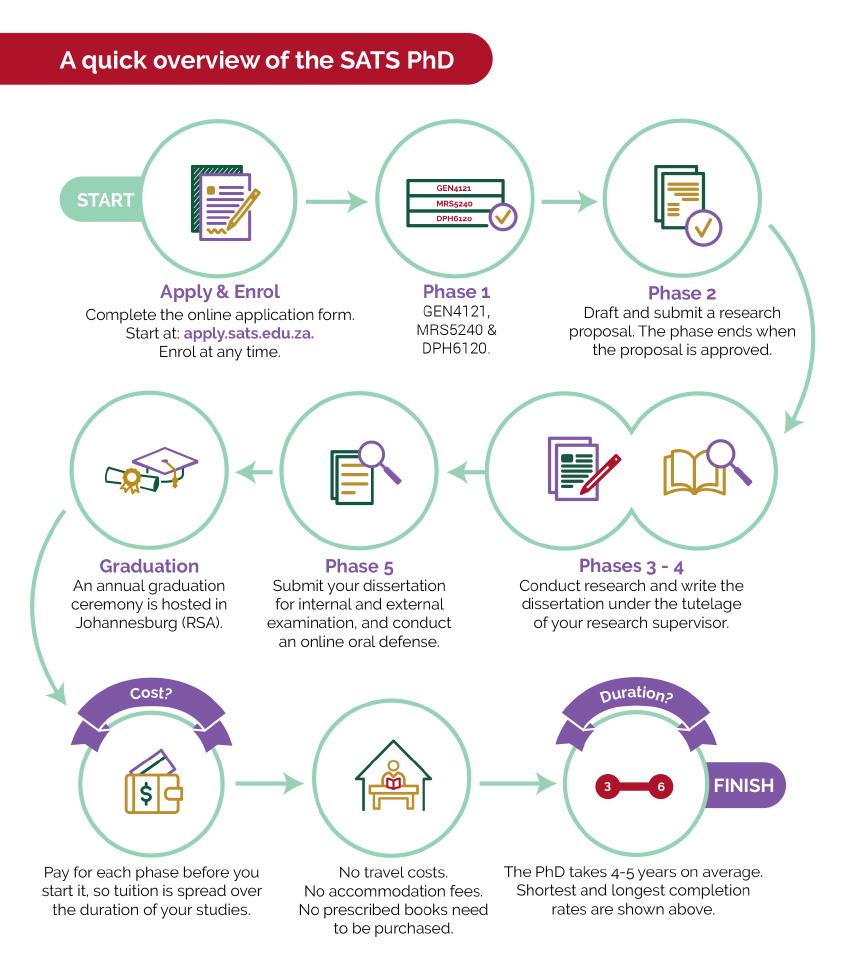
Do I Qualify?
To be admitted to the Doctor of Philosophy in Theology, a candidate must have achieved an above-average grade in their Master’s degree. Additionally, a candidate must meet one of these admission requirements:
- An accredited Master’s degree in a theological field, with a substantial research project.
- An accredited Master’s degree in another field, with a substantial research project, accompanied by an accredited Bachelor Honours in Theology.
Submit your application to determine if you qualify to study with us.
The PhD is a research degree that culminates in an original dissertation of 80,000–100,000 words. The learning journey is divided into five phases.
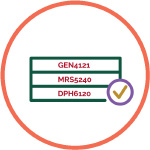
Phase 1 begins when you enrol. It consists of two online courses: GEN4121 Theological Orientation and MRS5240 Research Concept Development. Only outstanding candidates who achieve 75% or higher will be invited to proceed.

Phase 2 requires you to draft and submit a formal research proposal, which you do in consultation with your appointed supervisor, a scholar specialising in your research area. The phase ends when the SATS Research Committee approves your research proposal.
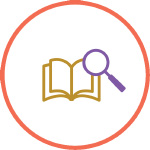
Phases 3–4 are where you conduct the research and write the dissertation, under the tutelage of your appointed supervisor.

Phase 5 is about examination! You submit your dissertation for internal and external examination, making the required improvements. You must also submit an article based on the thesis. The PhD journey culminates in the online oral defence. This takes place after the dissertation passes both the internal and external evaluation process. The student is required to defend his or her thesis by responding to questions posed by a team of experts in the chosen fields of study.
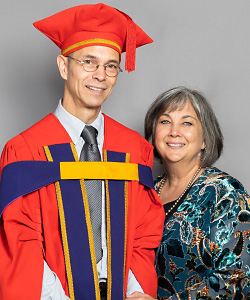
US Students
North American students find SATS’ PhD in Theology programme relevant and affordable. By 2016 there were already ten Ph.D. graduates from the USA, with a further 32 enrolled students.
Recently our MTh and PhD programmes were submitted to two of the most frequently used and highly recommended evaluators in the USA, namely, the International Education Research Foundation, Inc. (ierf.org) and the American Association of Collegiate Registrars and Admissions Officers’ International Education Services, and both confirmed that these degrees represent attainment of a level of education comparable to the equivalent degrees from a regionally accredited university in the United States. Our degrees are also recognised by the German website anabin.kmk.org which provides information about the evaluation of foreign qualifications, as well as by the Brazilian and Argentinian governments.
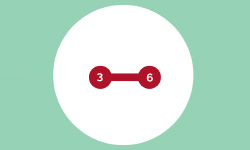

How Long Does It Take?
The minimum duration is two years, but the average completion is 3 – 6 years with a maximum of 7 years.
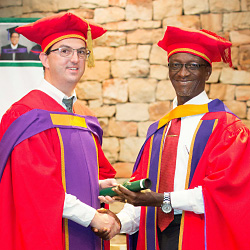
Students From Africa
Several potential PhD candidates from Africa have told us that the demands made upon them as Christian leaders prevent them, in their own country, from giving the attention that their PhD studies would require. They have pointed out that the only solution is to leave their country for a short time in order to devote their full attention to their research.

Click here to see the Full Price List for all programmes
You pay at the beginning of each phase, so the tuition is spread over 3–5 years (the average time it takes to complete the programme).
The tuition fees are the total cost of the programme. There are no hidden costs, no travel costs, no accommodation costs, and no prescribed books to purchase.
For many PhD programmes, these “hidden” costs can easily double or triple the total cost of study.
Kindly note that all fees paid to SATS are non-refundable.
Complete our online application form, or contact us.
Why PhDs are good – for individuals, and for a country
Vice President of the Academy of Science of South Africa and DST-NRF SARChI chair in Fungal Genomics, Professor in Genetics, University of Pretoria, University of Pretoria
Disclosure statement
Brenda Wingfield receives funding from the Department of Science and Innovation in South Africa as she holds a DST/NRF research chair. She is a Professor at a South African University and is the vice president of the Academy of Science of South Africa (ASSAf).
University of Pretoria provides funding as a partner of The Conversation AFRICA.
View all partners

What is the value of a PhD? Is there a need in a developing world country to undertake a PhD study? It’s expensive (around R1 million per graduate) and in many regards a luxury for students from poor families. Even for those who have better access to money there’s a very real cost in tuition, costs of the research as well as years lost with regards to climbing the career ladder. As students in the southern hemisphere consider their study options for next year, it’s worth revisiting the pros and cons of doing a PhD.
From an individual perspective, there are good and bad reasons to do a PhD.
The good reasons include achieving a significant goal in terms of a research output, publications and in many cases solving an important problem. Doing research towards a PhD allows one to be curious, literally every day.
It’s also the first step in becoming part of the global network of researchers. Becoming part of a global community can be very gratifying.
The bad reasons would include the assumption that having a PhD will earn you a larger salary. This is not always the case. Another is peer pressure which can lead students to register for a PhD. Sometimes the pressure comes from family. Another not so good reason is when people decide to do a PhD because they don’t like the job that they are doing.
Undertaking a PhD study should only be considered if you are really passionate about research and understand that it really takes a huge amount of time and energy. It is after all the ultimate degree – there are none higher.
The value of a PhD
The bottom line is that there is no magic about the qualification. It doesn’t make you a better or smarter person.
However, people who have PhDs have shown a certain capacity and tenacity and have the degree to prove it. Many other people might have the equivalent capacity and tenacity but without the degree it is less easy for employers to identify them.
The South African government has identified that producing people with a PhD degree is an important goal. The Department of Science and Innovation has suggested that universities need to increase their output of PhD graduates to 100 graduates per million people. At the moment South Africa has 46 doctoral graduates per million people, this is one tenth of the figure for Switzerland (465) and United Kingdom (409).
The new target would take the expected output to more than 5800 PhD graduates every year. In 2016 the number of PhD graduates in South Africa was just under 3000 .
The government’s argument is that the PhD degree can be seen as a driver of the academic pipeline. If we focus on getting more PhDs, universities will also increase other graduates in the pipeline. While I support the idea of PhDs being a driver, I think that the current targets cannot be achieved for many years.
One cannot easily change the PhD pipeline quite so rapidly. In 2001 there were 802 PhD graduates, in 2009 this had increased to 1380 and in 2017 this had increased to 3057 , which has been a remarkable achievement. This is especially the case given the current global and local economic climate.
All countries need strong comprehensive universities – institutions that do more than just train students to the bachelor degree level. To have a substantive research output a university must have academics with PhDs. Only people with PhDs can train PhD graduates.
That does indeed mean building a vibrant PhD graduate training programme to support strong research output. South Africa is short of people with the appropriate qualifications (PhDs) to do the training. And it cannot expect to import such graduates to support its economy, because without strong comprehensive universities a country cannot train the range of graduates with skills necessary for sustained economic growth and development.
Quite a bit has been written about an over supply of PhD graduates. But this isn’t a problem in a country like South Africa where I have trained 52 PhD graduates, all of whom have found jobs. Not all are in academic positions, not all are still doing research. None of them have ever suggested that doing a PhD was a waste of time.
We need to train more, not less.
- Higher education
- Economic development
- South Africa
- Academic life

Sydney Horizon Educators (Identified)

Senior Disability Services Advisor

Deputy Social Media Producer

Associate Professor, Occupational Therapy

GRAINS RESEARCH AND DEVELOPMENT CORPORATION CHAIRPERSON

- Governance Structure of Department
- Administrative Support
- Educational Resource
- History of professions
- Professional Bodies
- What do graduates say?
- What do SLP and Audios do? A day in the life ...
- What is a Speech-Language Pathologist?
- What is an Audiologist?
- Accommodation
Financial assistance
- Student support
- Our Clinics
- Current projects
- Why study at UCT?
- CSD Research
- About Disability Studies
- Disability Studies Undergraduate Programme
- Disability Studies Postgraduate Programmes
- Disability Studies Staff
- Disability Studies Research
- Current Students
- TEDI: Research
- TEDI courses
- About Nursing & Midwifery
- Postgraduate
- Nursing & Midwifery Staff
- Postgraduate Diploma in Nephrology Nursing Programme
- Postgraduate Diploma in Nursing
- Postgraduate Diploma in Ophthalmic Nursing
- Master of Science (Nursing) Dissertation-only programme
- MSc(Nursing) by coursework and minor dissertation
- Professional Masters
- PhD in Nursing & Midwifery
- Nursing & Midwifery Research
- Occupational Therapy as a career
- OT Undergraduate Programme
- MSc in Occupational Therapy by coursework (MM018)
- MSc in Occupational Therapy by dissertation (MM005)
- Rules & regulations
- PhD in Occupational Therapy
- Occupational Therapy Staff
- Occupational Therapy Research
- OT Qualification Verification
- About Physiotherapy
- Courses offered
- MSc in Physiotherapy
Doctor of Philosophy in Physiotherapy
- MSc in Exercise and Sports Physiotherapy
- Physiotherapy Staff
- Physiotherapy Research
- Current News
- Archive News
- Newsletters
- IDEA Research Unit
- Research Committee
- About Inclusive Practices Africa
- Inclusive Practices
- Influencing and Communicating
- Research, Teaching and Learning
A Doctor of Philosophy (PhD) in Physiotherapy is offered by dissertation only and should take a minimum of two, and a maximum of five years to complete. Current areas of research include paediatric neurology, neuromusculoskeletal and sports physiotherapy, cardiorespiratory physiotherapy, orthopaedic physiotherapy, disability prevention, health promotion, and physiotherapy education.
- To develop in-depth knowledge and advanced research skills in an approved specialised area of your choice (subject to the availability of sufficient supervisory expertise in that area)
- To develop and maintain sound evidence-based knowledge in an area of physiotherapy
- To develop innovative thinking and problem-solving abilities
- To develop proficiency in data collection and interpretation of results
- To gain independence in research and scientific writing skills
- (f) To investigate and utilise funding opportunities
- (g) To disseminate research finidings, including publications in peer-reviewed international scientific journals and presentations at local and international conferences
Admission Requirements
A candidate shall not be admitted to the programme unless he/she:
- has a recognised Masters degree; or
- has a recognised honours bachelors degree, or a recognised four-year bachelors degree, plus at least one year's registration for an approved masters degree (See below under Regulations);
- has a recognised three-year bachelors degree plus at least two years registration for an approved masters degree (See below under Regulations)
- is registered with the Health Professions Council of South Africa as a physiotherapist or a physiotherapy student (or provides evidence of appropriate registration with an equivalent registering body outside of South Africa) depending on the site and nature of research
- Preference will be given to egible applicants with a high academic record (first class or upper second class).
- A proven aptitude for project work and/or research is an advantage.
Duration of the Degree
The PhD (Physiotherapy) must be completed in a minimum period of two years and a maximum period of five years of study. The candidate will be also need to provide proof of completion of approved course in research methods and biostatistics and in medical research ethics. The course may be completed prior to registration, may be an online course, or may be a course offered at UCT.
The major commitment of the PhD candidate is to produce a thesis/dissertation containing:
- a critical and thorough appraisal of the basic knowledge and the current issues in the research area of your choice
- a detailed description of the research proposal, methodology used and the results obtained, and
- an interpretation of the results and a discussion of their relevance relative to other work in the field.
The PhD degree requires that the research should have an original component, and that the results should add significantly to our knowledge in the area.
Each student shall select a main supervisor and another 1 or 2 co-supervisors will be selected/appointed by the student and the chief supervisor. To achieve the goals of the thesis, the student will work closely with 2 supervisors, who will (i) guide you through the process of planning, experimenting and writing and (ii) encourage you to progress as independently as possible.
It is recommended that major portions of the research for a PhD should be published in peer-reviewed journals prior to submission of the thesis. The thesis itself may be written as a series of related journal articles if so desired.
Application Procedure for PhD in Physiotherapy
Before starting the application process the student is advised to contact the postgraduate convener, Dr Theresa Burgess, to discuss possible areas of research and to identify a possible supervisor. ( [email protected] ; +27 21 406 6171)
The application procedure requires:
- The completion of a UCT application form
- The submission of a study outline
- Identification of a suitable supervisor and possible topic
- The submission of a curriculum vitae (CV) and academic transcript
- The submission of the PhD questionnaire
UCT Application Form
Application forms may be found on the University of Cape Town website and may be returned to:
Ms Salega Tape Postgraduate Office Faculty of Health Sciences Barnard Fuller Anzio Road Observatory 7725 Cape Town South Africa
Applications for the PhD (Physiotherapy) are accepted throughout the academic year. However, a completed application form is required for the candidate to be considered for admission to study. Please contact Ms Tape ([email protected] ; +2721 406 6340) with any further enquiries regarding the application form.
Submission of a Study Outline
As part of the application process, the Division of Physiotherapy requires the submission of a brief outline of a proposed study. Although a thesis supervisor will provide formal guidance and input in refining the research question and study design, at a PhD level it is expected that the student should have identified a specific research area of interest or a potential research question. The study outline should include a brief rationale for the study, the proposed research question, and a short escription of the proposed study design. The study outline should be a maximum of 100 words.
This outline will be reviewed by a selection committee, to determine whether applicants are familiar with the literature, able to initiate research (i.e. familiar with principles of research design), and to determine the level of scientific writing skills.
In addition, the selection committee will decide whether there is an appropriate supervisor available to assist with thesis supervision. Admission to the degree will be dependent on the identification of a suitable topic and supervisor.
Submission of a CV and Academic Transcript
Applications should be supported by the submission of a CV, and a copy of an undergraduate academic transcript.
Submission of a PhD applicant questionnaire
Applications should be supported by the submission of a PhD questionnaire. Click here to download the questionnaire.
The study outline, CV, academic transcript and PhD questionnaire should be submitted to Dr Theresa Burgess ([email protected])
Please contact Dr Theresa Burgess ( [email protected] ; +27 21 406 6171) for any further information.
Fees for the Postgraduate degrees in Physiotherapy are obtainable from the Fees Office and vary from year to year. Students can anticipate an average 10% increase in fees each year.
Fees Office
Email: [email protected] Phone: +27 21 650 1704 Fax: +27 21 650 4768
Financial assistance is available for postgraduate students at the University of Cape Town. Further enquiries may be directed to the Postgraduate Centre and Funding Office .

- South Africa
TOP 10 PHD CLASSES IN SOUTH AFRICA
Planning to get a PhD in South Africa?
Here is a table of South African Universities offering PhD in different in South Africa along with the duration and cost of the course:
Top Universities with PhD programs in South Africa?
1. University of Cape Town, Cape Town
2. University Witwatersrand, Witwatersrand
3. Stellenbosch University, Stellenbosch
4. University of Kwazulu-Natal, Durban
5. North West University, Potchefstroom
6. University of Johannesburg, Johannesburg
7. University of Pretoria, Pretoria
8. University of the Western Cape, Belville
9. Rhodes University, Makhanda
10. Durban University of Technology, Greyville
What is the cost of a Ph.D. course in South Africa?
The average cost of a Ph.D. course in South Africa is R19405 per annum.
What is the duration of Ph.D. courses in South Africa?
The average duration of Ph.D. courses in South Africa is 3-5 years.
What is the salary of an Associate Professor in South Africa?
The average salary of an Associate Professor in South Africa is R588 686 per annum.
- Online PhD Courses

About Coursetakers.com
- Professional
Quick Links
- Upload Your Courses
- How It Works
- Coursetakers News
- Coursetakers News - UAE
- Delivery and Refund Policy
© 2024 coursetakers.com All Rights Reserved. Terms and Conditions of use | Privacy Policy
Get in touch with all the institutes
Claim this institute profile.

List Of PHD Programs In South Africa
PhD is short for Doctor of Philosophy. This is an academic or professional degree that, in most countries, qualifies the degree holder to teach their chosen.
Find below are the list of PHD Programs In South Africa
UKZN Westville Graduate School of Business & Leadership
Address: University Rd, Westville, 3630 Hours: Open 24 hours Phone: 031 260 1615
Henley Business School – Africa
Address: Henley Africa Campus, 1 Witkoppen Rd, Paulshof, Johannesburg, 2191 Hours: Closed ⋅ Opens 8:30AM Tue Phone: 011 808 0860
Wits School of Governance
Address: 2 St Davids Pl, Parktown, Johannesburg, 2050 Phone: 011 717 3520
IMM Graduate School Sandton
Address: ESCA, The Wanderers Club, 21 North St, Illovo, Sandton, 2196 Phone: 011 628 2000
How many years is PhD in South Africa?
South African PhDs generally take between two to three years to complete if you are in full-time study, with a minimum of 4 years if you are studying part-time. The course length does vary however, and this generally depends on time of registration and funding arrangements.
Do PhD students get paid in South Africa?
The highest salary for a PhD Student in South Africa is ZAR 18,000 per month. The lowest salary for a PhD Student in South Africa is ZAR 10,000 per month.
How many credits is a PhD in South Africa?
NQF LEVEL AND CREDITS
The exit level of the Doctoral qualification is NQF Level 10. The minimum number of credits allocated to the qualification is 360 credits, all credits being at NQF Level 10. In the case of a Doctoral degree awarded entirely by research, all 360 credits are allocated to the thesis.
Is a PhD worth it in South Africa?
The value of a PhD. The South African government has identified that producing people with a PhD degree is an important goal. The Department of Science and Innovation has suggested that universities need to increase their output of PhD graduates to 100 graduates per million people.
Which PhD pays most?
Science, Technology, Engineering, and Mathematics (STEM) PhDs tend to pay the most, according to research conducted by Payscale. Electrical & computer engineering is America’s most lucrative PhD, with early career pay reported to be approximately $102,000.
How much do PhD lecturers earn in South Africa?
When the education level is Master’s Degree, the average salary of a Lecturer is 30,400 ZAR per month. While someone with a PhD gets a salary of 54,000 ZAR per month, 78% more than someone having a Master’s Degree degree.
- Undergraduate
- Short Courses
- Online Courses
- Masters/Postgraduate
- Postdoctoral
- Study in Africa
- Study in Asia
- Study in Australia
- Study in Europe
- Study in USA
- Fellowships
- Internships
- Volunteering
- OD Live Series
- Young Person of the Month
- Success Stories
- General Tips
- ODIC 2023 Application
- ODIC Judges
- ODIC 2022 Winners
- ODIC 2021 Winners
- ODIC 2019 Winners
- ODIC 2018 Winners
- ODIC 2017 Winners
- ODIC 2016 Winners
- Australia and Oceania

African Economic Research Consortium (AERC) PhD Fellowship 2024-2025
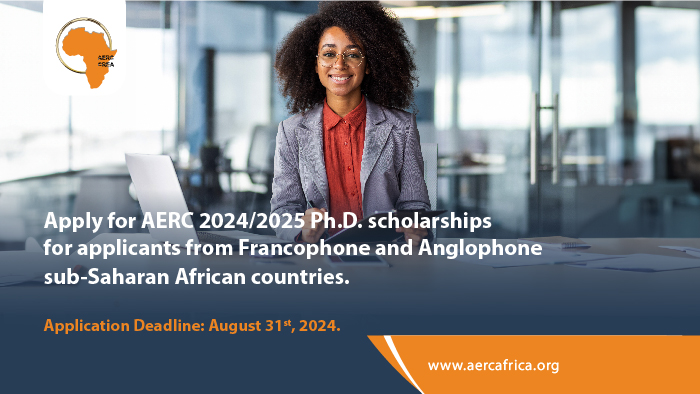
Deadline: August 31, 2024
Applications are open for the African Economic Research Consortium (AERC) PhD Fellowship 2024-2025 . The African Economic Research Consortium (AERC) was established in 1988 as a public not-for-profit organization devoted to the advancement of economic policy research and training in Africa.
The Consortium’s mandate and strategic intent is built on the basis that sustained development in sub-Saharan Africa requires well-trained, locally based professional economists. AERC agitates the provision of capacity building in economic policy in Francophone and Anglophone African countries through provision of support in the areas of policy research and graduate training.
AERC wishes to announce the 2024/2025 Ph.D. scholarships for applicants from Francophone and Anglophone sub-Saharan African countries admitted into any of the following AERC Collaborative PhD Programme (CPP) in Economics degree-awarding universities:
- University of Cape Town, South Africa
- University of Abomey-Calavi, Benin
- University of Dar es Salaam, Tanzania
- University of Benin, Nigeria
- Félix Houphouet-Boigny University, Côte d’Ivoire
- University Cheikh Anta Diop in Dakar, Senegal
- University of Ibadan, Nigeria
- University of Nairobi, Kenya
- University of Yaoundé II, Cameroon
- University of Pretoria
- University of Witwatersrand, South Africa
Eligibility
To qualify, an applicant must:
- Have applied and been admitted to any one of the listed CPP universities;
- Have attained at least a Second Class Honours (Upper Division) or equivalent in Economics, Agricultural Economics, or related field from an accredited university;
- Have a Masters degree (with coursework and thesis component) in Economics, Agricultural Economics, or related fields from a recognized University. The coursework should have covered microeconomics, macroeconomics, quantitative methods and econometrics;
- Possession of at least 1 relevant publication in a refereed journal will be an added advantage;
- Evidence of engagement in economic management, research, and/or training in the public sector will be an added advantage; and
- Female and applicants from post-conflict and fragile states are encouraged to apply.
Application
Interested applicants must submit their applications for admission directly to the respective universities (application procedure can be obtained from the respective university’s website). Upon receipt of an admission letter from a specific university, applicants shall upload the following documents on to the AERC scholarship portal .
- Application cover letter;
- Curriculum Vitae.
- Evidence of admission at any of the universities listed above; and
- Certified copies of transcripts and certificates.
For more information, visit AERC .

Jude Ogar is an educator and youth development practitioner with years of experience working in the education and youth development space. He is passionate about the development of youth in Africa.
Related Posts
Leibniz institute of european history (ieg) fellowships 2025, ct climate journalism mentoring program 2024 for latam, ispa netherlands fellowship 2025-2027 (stipend available).
Type above and press Enter to search. Press Esc to cancel.

Home / News / Announcement of 2024 PhD Fellowship
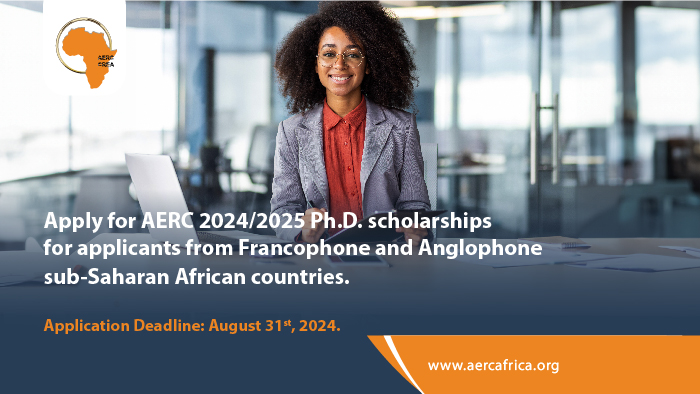
Announcement of 2024 PhD Fellowship
The African Economic Research Consortium (AERC) was established in 1988 as a public not-for-profit organization devoted to the advancement of economic policy research and training in Africa. The Consortium’s mandate and strategic intent is built on the basis that sustained development in sub-Saharan Africa requires well-trained, locally based professional economists. AERC agitates the provision of capacity building in economic policy in Francophone and Anglophone African countries through provision of support in the areas of policy research and graduate training.
AERC wishes to announce the 2024/2025 Ph.D. scholarships for applicants from Francophone and Anglophone sub-Saharan African countries admitted into any of the following AERC Collaborative PhD Programme (CPP) in Economics degree-awarding universities:
Qualifications and Requirements :
To qualify, an applicant must:
- Have applied and been admitted to any one of the listed CPP universities;
- Have attained at least a Second Class Honours (Upper Division) or equivalent in Economics, Agricultural Economics, or related field from an accredited university;
- Have a Masters degree (with coursework and thesis component) in Economics, Agricultural Economics, or related fields from a recognized University. The coursework should have covered microeconomics, macroeconomics, quantitative methods and econometrics;
- Possession of at least 1 relevant publication in a refereed journal will be an added advantage;
- Evidence of engagement in economic management, research, and/or training in the public sector will be an added advantage; and
- Female and applicants from post-conflict and fragile states are encouraged to apply.
Interested applicants must submit their applications for admission directly to the respective universities (application procedure can be obtained from the respective university’s website). Upon receipt of an admission letter from a specific university, applicants shall upload the following documents on to the AERC scholarship portal https://training.aercafrica.org/admissionnew
- Application cover letter;
- Curriculum Vitae.
- Evidence of admission at any of the universities listed above; and
- Certified copies of transcripts and certificates.
The deadline for applying for the scholarship is August 31, 2024 .
Related Posts

Prof. Théophile Azomahou Appointed Executive Director of the AERC

Recruitment and Outreach Mission

Dissemination Workshop on study “Structural change, productivity and jobs creation: Evidence from Tunisia”

2019 Senior Policy Seminar

The Human Capital Development National Policy Workshop, Madagascar

AERC participates in the BMGF Partners Convention on Debt, SDRs and MDB Reform Advocacy

Inter-Ministerial Policy Dialogue on Strengthening Primary Healthcare Financing and Service Delivery in Kenya
- Report Vulnerbility
- Whistleblowing
- Privacy Terms
© 2024 All Rights Reserved
- Environment
- Communities
- Grow Magazine
- About CALS News
College of Agricultural & Life Sciences
Gather and connect. experience and serve. learn and grow., spring 2024 grad: maxwell chibuogwu studies crop pathogens, earns phd to support agriculture in african nations.

Maxwell Chibuogwu, an international student from Nigeria, will be graduating this spring with a PhD in plant pathology. In this Q&A, he talks about his route to UW–Madison, his motivation to study pathogens of crop plants, his leadership roles at UW, and the journey he’ll take to reach his future career goal: to consult for African ministries of agriculture.
Where were you born? Where did you grow up? I was born in Agbor-Nta, a village tucked away in Delta State of Southern Nigeria. My father, in search of work opportunities and hopes of providing his family with better opportunities, decided to relocate to Benin City in Edo State when I was just four years old. Since then, Benin City has been my primary residence, and I have spent more than 20 years of my life living and schooling in this vibrant city. Although we would occasionally visit Agbor-Nta during school breaks and festive holidays such as Christmas and New Year, I have come to call Benin my true home.
Why did you choose your PhD program? What did you learn / discover? The plant pathology program here at UW-Madison is one of the top five programs in the country. That and some other reasons described below are why I chose to pursue a PhD in plant pathology here. But in regards to the area of plant pathology as a field, personal experiences I had with the negative economic impact that plant diseases can have on food crops made me choose it. For instance, my family once had to look for alternative sources of tomatoes due to a pest problem that made them too expensive for average families to buy. This experience made me realize how important it is to prevent diseases from affecting crops and to maintain food security.
Secondly, during my undergraduate studies, I had a conversation with my advisor that sparked a thought in my mind. I realized that if a pathogen were to infect some of the world’s staple foods, it could potentially lead to a lot of people dying. This made me want to be part of the group of people who work to protect crops from diseases.
Moreover, I later learned that one of the reasons why Nigeria is unable to make money from exports is because of phytosanitary restrictions. The presence of pathogens and diseases on our crops has limited our export potential, and we have lost many of the produced foods to spoilage caused by pathogens.
During my senior secondary school 2 (junior year of high school), I was fortunate enough to be one of eight students selected from Nigeria for a youth leadership student exchange program. UW-Extension hosted this program in partnership with 4-H and the U.S. Department of State, and it gave me my first exposure to the campus of UW-Madison. Ever since that experience, I have been determined to return to this beautiful city in the state known as “America’s Dairyland.”
For my PhD research, I worked on a project with significant implications for the dairy industry. My project focused on finding integrated management strategies for controlling diseases and toxins in corn for silage. Silage corn is a major component of a dairy cow’s daily diet and is crucial to milk production. Unfortunately, these corn plants can be infected by fungi that cause disease and produce mycotoxins, which are harmful to cows. My research expanded the current understanding of brown midrib (BMR) silage corn hybrids, which are known for their potential to increase milk production in cows. However, we discovered that BMR hybrids are not effective in handling diseases and toxins. In fact, we found that they accumulate more toxins and are more susceptible to disease. We also identified the pattern of toxin accumulation in different parts of the silage corn plant, such as the ear portions and stalk portions. Additionally, we found that mycotoxin levels increase during the first 30 days of ensiling (fermentation), and we uncovered a potential mechanism responsible for this increase.
What other activities were you involved in (such as student orgs, etc.)? Throughout my academic journey, I was actively involved in various extracurricular activities and groups. As a REACH ambassador, I had the incredible opportunity to share my country’s culture with American audiences, ranging from middle school students to adults. This program enabled me to serve as a cultural ambassador and build bridges between different cultures.

In addition, I served on the International Student Advisory Board (ISAB) for two consecutive years. As a member of the board, I helped advocate for the needs of my international student peers and ensure that their voices were heard. It was a fulfilling experience to contribute to improving the international student experience at my university.
Furthermore, I was honored to serve as the president of the UW-Madison’s chapter of MANRRS (Minorities in Agriculture, Natural Resources, and Related Sciences). The organization provided a supportive community for fellow minority students in Agriculture, Natural Resources, or Related Sciences, and I was proud to be a part of it.
Additionally, I served as the treasurer of the Plant Sciences Graduated Student Council (PSGSC) for a year. Later, I became the seminar coordinator and then the chair of the Plant Pathology Graduates Council (PPGC) in my department. These experiences taught me valuable leadership and organizational skills.
Lastly, as a member of the e-board of WEMP (What’s Eating my Plant), I contributed to educating the greater Madison community about plant pests and diseases. Through this group, I was able to build my science communication and science translation skills while engaging with the public and addressing real-world problems.
Overall, I am grateful for these experiences, which allowed me to develop personally and professionally while making meaningful contributions to my university and community.
What are your future academic and/or career plans – short-term and long-term? My ultimate career goal is to become a professor who consults for African ministries of agriculture to help them achieve their objectives in the long term. However, I realize that I need to gain academic, agricultural industry, and government experiences to be that person. Thus, my short-term goal is to build the necessary pedigree and network base that will give me access to resources and tools to aid in achieving global food security. After graduating, I plan to enhance my scientific skills through a post-doctoral training program. Later, I may be found working with the USDA, a university, or an NGO focused on developing African Agriculture, or in Washington, learning how agricultural policies are proposed and implemented.
What were the most valuable/meaningful college experiences you had? One of the most valuable experiences I’ve had in Madison is the opportunity to interact with people from different backgrounds and the availability of resources. The presence of international students in Madison adds a lively and diverse energy to the university. Through this, I have made great friends and had opportunities to explore and improve my scientific knowledge and expertise. Anytime I travel out of Madison for events or conferences I see how rich the UW-Madison academic system is.
When you think about your time here as PhD student, what are you proud of? I am filled with a sense of pride when I think about all that I have accomplished. From my leadership experiences and commitments to the research I have conducted, I am proud of the hard work and dedication that has brought me to where I am today. The University of Wisconsin-Madison has given me a remarkable degree that I am incredibly proud of. This prestigious institution has opened many doors for a young boy from a small village in Nigeria. Being the first Ph.D. holder in my lineage is a great achievement, and my whole extended family couldn’t be prouder of me. I am also blessed to have been awarded several scholarships, fellowships, and awards which I hold in high esteem.
Surviving COVID thousands of miles away from family and friends in a new country was a tough experience for me, but I am proud of how I handled it. I am also proud of the connections that I have made with people here. The support system that I have built has been instrumental in my journey, and I am grateful for it. The new things that I’ve learned, unlearned, and relearned have been an eye-opener for me. The experience has taught me many valuable lessons, and I have learned to adapt to new situations and challenges. I am proud to be a UW-Madison Alumnus, and I know that the education and experiences that I gained here will always be a part of me. I will always cherish the memories and experiences that I gained while studying here. Go Badgers!
Do you have any advice you’d like to share with CALS students? I encourage you to not hesitate in putting yourself out there, as long as you feel comfortable doing so. Your dreams and goals are valid, and you have the ability to achieve them. Do not let anyone or any situation dampen your spirits or extinguish your passionate ambition. Keep being yourself and be there for others whenever possible. You will find support and encouragement throughout your journey. Just keep showing up and before you know it, you’ll accomplish your goals and reach the top. See you at the top, buddy!

South African artist Esther Mahlangu honoured with a mathematics doctorate from UNISA
- Self-taught artist Dr Esther Mahlangun has been awarded an honorary doctorate by the University of South Africa (Unisa)
- Dr Esther Mahlangu is known for her bold, large-scale contemporary paintings that reflect her Ndebele heritage
- She has gone on to open up a school in her home village and was named the first woman artist to be commissioned to decorate a BMW car
South African artist Dr Esther Mahlangu is flagging her name high as she bagged an honorary doctorate from the University of South Africa (Unisa).
Dr Esther Mahlangu receives an honorary doctorate from UNISA
According to the media release seen by Briefly News, the self-taught artist was acknowledged for her aptitude in mathematics. The Doctor of Philosophy (Honoris Causa) in Mathematics degree. The event was held at the Unisa Muckleneuk Campus in Pretoria on Tuesday, 16 April 2024.
Unisa confirms that Dr Esther's work surpasses art by bestowing her an honorary degree in mathematics.
Speaking at the opening of the 2024 Autumn Graduation season, Unisa principal and vice-chancellor professor Puleng LenkaBula said the following:
“Here at Unisa we recognise Dr Mahlangu’s work as something that transcends art. It is our firm conviction that her work is a form of mathematics and should thus be recognised as such. As an African university, we have a responsibility to recognise and affirm our Indigenous knowledge systems and to ensure that they do not play second fiddle to other knowledge systems in the world”.
The self-taught artist opens a school
The multi-award-winning, globally acclaimed visual artist is well-known for her striking, expansive modern paintings that reflect her Ndebele ancestry. In addition to producing unique and avant-garde artworks that pay homage to her past, she also imparts her knowledge and abilities to the public and younger generation.
In her hometown, she founded an art school where she teaches adults and children the traditional Ndebele painting and beadwork techniques.
Dr Esther became the first female artist commissioned to decorate a BMW automobile in traditional Ndebele fashion in 1999, the first "African Art Car." The South African national treasure has inspired many people in all spheres of life.
Meet the first black female PhD in applied data science from the University of Johannesburg
Briefly News previously reported that a young woman is changing the narratives after being named the black female recipient of PhD in Applied Data Science from the University of Johannesburg.
According to the University of Johannesburg News, a lady named Khensani Xivuri graduated from the institution in 2024 with flying colours. The woman obtained a PhD in Applied Data Science from the university.
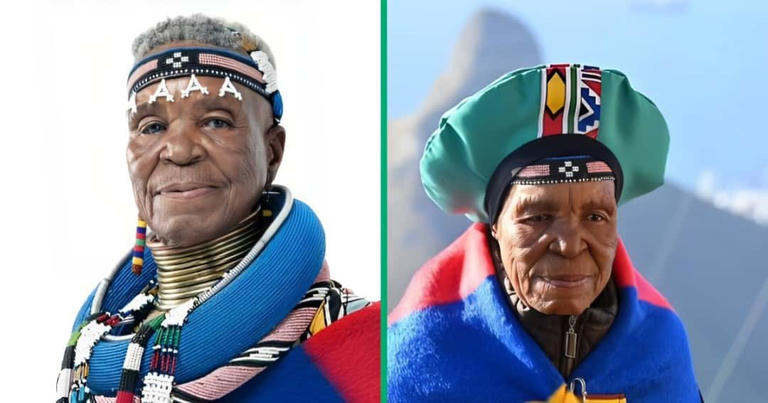

IMAGES
VIDEO
COMMENTS
PhD opportunities in South Africa require you to submit a written thesis at the end of your PhD. This is normally between 80,000-100,000 words. It is normal in South Africa for PhD candidates to give a written notice to their faculty at least two or three months before submitting their thesis for examination.
The WBS PhD programme is the largest in South Africa and one of the most highly regarded on the continent. We seek out and bring together top candidates from across Africa to address important topics in their PhD research that are relevant to the advancement of business and society on our continent. We have students from Ghana, Kenya, Nigeria ...
The Department of Sociology conducts postgraduate interviews in the last week of October, November and January. If you want to check that your application has been received by the Student Services Centre, please contact: +27 (0)12 420 4111 or [email protected]. If you want to track the progress of your application in the Sociology department, please ...
PhD Application. Thank you for your interest in pursuing a PhD degree in the Faculty of Medicine and Health Sciences of Stellenbosch University. Our campus is situated in the picturesque Tygerberg area of Cape Town, South Africa, and incorporates a ground-breaking new Biomedical Research Institute (BMRI).
You can pay anywhere between 35 to 19,000 EUR per year for a study programme in South Africa. There are many factors that influence these costs: type of university (public vs private) study level (Bachelor's, Master's, PhD) discipline (Engineering, Medicine, Humanities, etc.) Even so, you will pay a lot less here then you would at a Western ...
Applications For 2023 Doctoral Study In Philosophy at UJ. DEADLINE: 30 October 2022. If you have any questions prior to submitting your application, contact the Postgraduate Admissions Co-ordinator, Prof Catherine Botha [email protected], or the academic member of staff whose areas of expertise in which you are interested.
Find the list of all PHD Programs in South Africa with our interactive Program search tool. Use the filters to list programs by subject, location, program type or study level.
Doctor of Philosophy. Join top candidates from across the continent, engage in robust knowledge sharing and hone your research skills. This course provides a deeper understanding of business administration, including finance and human resources.
PhD students at the UCT GSB are a vital part of our research community and research strategy. The University of Cape Town is Africa's leading research institution and the PhD programme at the GSB is an essential component of this. PhD candidates are expected to: Develop a formal research proposal within the first six months of registration.
Deposit payable on acceptance of admission (Included in tuition fees) R31 826.00. R31 826.00. Generate Quote. PhD Business Management and Administration. R63 651.00. R63 651.00. R127 302.00. Stellenbosch Business School reserves the right to change the fees at any time.
PhD Programme. The School of Human and Community Development currently offers: The application procedure detailed below pertains to both types of PhD. Disciplines covered in this School: Psychology, Social Work, Speech Pathology, Audiology - for PhDs in other disciplines please contact the relevant Department/School.
Education. 207 EUR / year. 2 years. The Doctoral Programme is a large, dynamic and wide-ranging programme in the School of Education from University of Kwazulu Natal. Ph.D. / Full-time, Part-time / On Campus. University of Kwazulu Natal Durban, South Africa. Ranked top 3%. Add to compare.
Doctor of Philosophy (90040) - SET, MAT, TEC, CHE, COM, LIF, AST, STA, SCE & PHY options. Master of Science in Nature Conservation (Full Dissertation) (98022) Qualifications in the Department of Decision Science: Master of Science (98597 - ORE), the PhD in Operations Research (98598) and the MCom in Quantitative Management (98701) Click here ...
PhD in Psychology. This is a research doctoral degree, by dissertation only. Students develop their own research topic in conjunction with a supervisor, conduct the research and then write a dissertation of no more than 80 000 words. This degree does not lead to registration as a Psychologist with the Professional Board for Psychology.
Embarking on the path to a PhD is a scary business. Shutterstock. A Doctor of Philosophy, which most people know as a PhD, is the highest academic accolade. It demands a substantial investment of ...
Application fee. Pay the online application fee of R135,00 once you have received your Unisa student number. Please note: The application fee is non-refundable even if you decide not to study through Unisa or do not qualify for admission to Unisa. Use the student number you receive from Unisa AND the application fee reference number (eg ...
PhD Fees and Funding. A doctoral degree is a shared investment - by the state, the university, the individual, and funders - in the future prospects of an individual, community and society. Click on the links to jump to the following sections below: Fees. Bursaries and research funding.
North American students find SATS' PhD in Theology programme relevant and affordable. By 2016 there were already ten Ph.D. graduates from the USA, with a further 32 enrolled students. Recently our MTh and PhD programmes were submitted to two of the most frequently used and highly recommended evaluators in the USA, namely, the International ...
In 2016 the number of PhD graduates in South Africa was just under 3000. The government's argument is that the PhD degree can be seen as a driver of the academic pipeline. If we focus on getting ...
PhD. Please note that the University of the Free State (UFS) has its own minimum admission requirements for postgraduate studies. As a general rule, students are admitted to postgraduate studies and to each higher level of postgraduate study only if they fulfil the university requirements for registration, have completed the preliminary degree with a mark of 60% or more, and are accepted to ...
South Africa. Applications for the PhD (Physiotherapy) are accepted throughout the academic year. However, a completed application form is required for the candidate to be considered for admission to study. Please contact Ms Tape ([email protected]; +2721 406 6340) with any further enquiries regarding the application form.
Here is a table of South African Universities offering PhD in different in South Africa along with the duration and cost of the course: Institute Name. City. Course Name. Duration. Course Fee. University of Cape Town . Cape Town. Ph.D. in Business Administration. 3-4 Years. R 20 310 (Full Course)
Animal, Plant and Environmental Sciences. University of the Witwatersrand, Johannesburg. Johannesburg, South Africa. More interesting programmes for you. Find the best PhD programmes from top universities in South Africa. Check all 0 programmes.
This is an academic or professional degree that, in most countries, qualifies the degree holder to teach their chosen. Find below are the list of PHD Programs In South Africa. UKZN Westville Graduate School of Business & Leadership. Address: University Rd, Westville, 3630. Hours: Open 24 hours. Phone: 031 260 1615. Henley Business School ...
Deadline: August 31, 2024. Applications are open for the African Economic Research Consortium (AERC) PhD Fellowship 2024-2025.The African Economic Research Consortium (AERC) was established in 1988 as a public not-for-profit organization devoted to the advancement of economic policy research and training in Africa.
The African Economic Research Consortium (AERC) was established in 1988 as a public not-for-profit organization devoted to the advancement of economic policy research and training in Africa. The Consortium's mandate and strategic intent is built on the basis that sustained development in sub-Saharan Africa requires well-trained, locally based professional economists.
Application Deadline: August 31, 2024. Applications are now open for the 2024/2025 African Economic Research Consortium (AERC) PhD Fellowships.The African Economic Research Consortium (AERC) was established in 1988 as a public not-for-profit organization devoted to the advancement of economic policy research and training in Africa.
Maxwell Chibuogwu, an international student from Nigeria, will be graduating this spring with a PhD in plant pathology. In this Q&A, he talks about his route to UW-Madison, his motivation to study pathogens of crop plants, his leadership roles at UW, and the journey he'll take to reach his future career goal: to consult for African ministries of agriculture.
Self-taught artist Dr Esther Mahlangun has been awarded an honorary doctorate by the University of South Africa (Unisa) Dr Esther Mahlangu is known for her bold, large-scale contemporary paintings ...